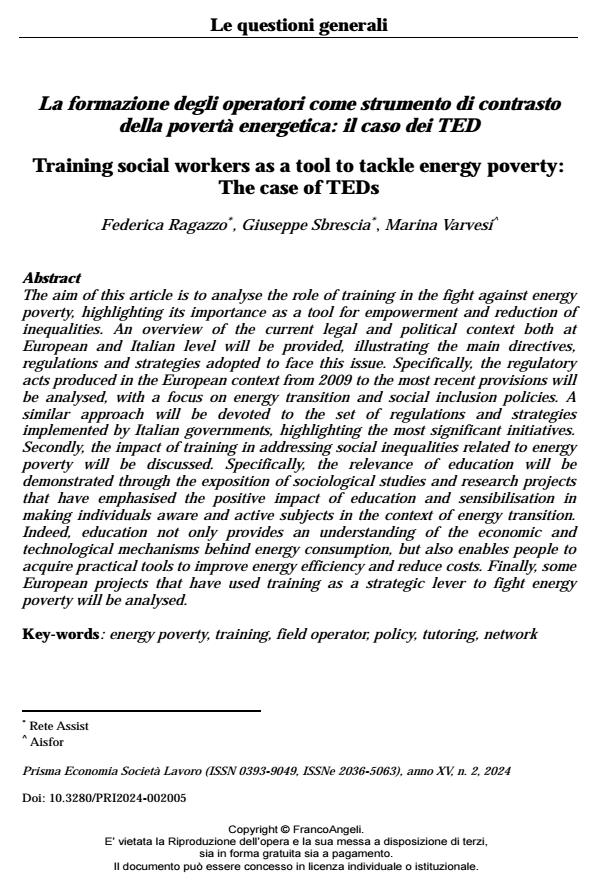Training social workers as a tool to tackle energy poverty: The case of TEDs
Journal title PRISMA Economia - Società - Lavoro
Author/s Federica Ragazzo, Giuseppe Sbrescia, Marina Varvesi
Publishing Year 2025 Issue 2024/2
Language Italian Pages 16 P. 45-60 File size 133 KB
DOI 10.3280/PRI2024-002005
DOI is like a bar code for intellectual property: to have more infomation
click here
Below, you can see the article first page
If you want to buy this article in PDF format, you can do it, following the instructions to buy download credits

FrancoAngeli is member of Publishers International Linking Association, Inc (PILA), a not-for-profit association which run the CrossRef service enabling links to and from online scholarly content.
The aim of this article is to analyse the role of training in the fight against energy poverty, highlighting its importance as a tool for empowerment and reduction of inequalities. An overview of the current legal and political context both at European and Italian level will be provided, illustrating the main directives, regulations and strategies adopted to face this issue. Specifically, the regulatory acts produced in the European context from 2009 to the most recent provisions will be analysed, with a focus on energy transition and social inclusion policies. A similar approach will be devoted to the set of regulations and strategies implemented by Italian governments, highlighting the most significant initiatives. Secondly, the impact of training in addressing social inequalities related to energy poverty will be discussed. Specifically, the relevance of education will be demonstrated through the exposition of sociological studies and research projects that have emphasised the positive impact of education and sensibilisation in making individuals aware and active subjects in the context of energy transition. Indeed, education not only provides an understanding of the economic and technological mechanisms behind energy consumption, but also enables people to acquire practical tools to improve energy efficiency and reduce costs. Finally, some European projects that have used training as a strategic lever to fight energy poverty will be analysed.
Keywords: energy poverty, training, field operator, policy, tutoring, network
Federica Ragazzo, Giuseppe Sbrescia, Marina Varvesi, La formazione degli operatori come strumento di contrasto della povertà energetica: il caso dei TED in "PRISMA Economia - Società - Lavoro" 2/2024, pp 45-60, DOI: 10.3280/PRI2024-002005